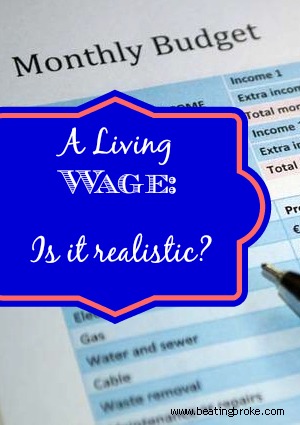Saving money is the safest way to build assets, as investing money always carries risks. That’s why the best way to take control of your finances often involves creating a flexible budget that ensures a certain amount of money will go toward savings every month. Here are ways to save on 10 everyday items.
1. Food
The best way to save money on food is to not each out as much. It doesn’t mean cut all restaurants from your budget, it means focusing more on preparing your own meals. If you can’t stop eating out, at least look for coupons or gift certificates.
Fruits and vegetables are still fairly cheap yet are high in nutrition, giving you more quality for your money. You can save hundreds of dollars per month by making your own salads and sandwiches. Mixing water with juices is an economical way to get the benefit of diverse flavors and nutrients at low costs.
2. Energy
Cutting down on dependence of electricity is important for various reasons. You never know when there may be a disaster with the electric utility company and you’ll be without power, so it’s good to prepare for such catastrophes. Conserving energy helps the environment by reducing fossil fuel emissions. Energy costs can also be unpredictable, so it’s a good idea to adopt energy conservation techniques. Smart tools are spreading to help remind consumers the amount of energy they are using. Turning off all appliances when not in use is a major key.
3. Water
Water bills can get surprisingly high in the event of a water leak. As with energy, there are now smart tools to detect water losses in piping systems. The key to adhering to values of sustainability is to simply not waste water. Use it as necessary, but don’t turn water on and forget about it. If you don’t have timers on sprinklers then be aware of when it’s time to turn the water off.
4. Transportation
A good way to save money on transportation is to walk more when it comes to short distances. If you live near a store, for example, save gas by walking. For longer distances, consider riding a bicycle or public transportation such as trains and buses. You can save money on daily rates by purchasing a monthly pass.
5. Disposable items
Part of regular expenses are often disposable items such as paper towels and tin foil. These items can be purchased cheaply at discount stores that sell items for a buck. These stores also carry a wide variety of soaps, cleansers and personal care products.
6. Entertainment
Spending money online for entertainment can add up to big bills if you watch a lot of movies. Playing Mini Lotto is a much cheaper alternative than other forms of online spending. At least with a lottery you have the satisfaction of enjoying the thrill of possible winnings until the numbers are called. Joining a lot of different streaming services can add up to a lot of money even if each one only charges $10 per month. Lotto is a fun affordable way to be in the running for expensive prizes.
7. News consumption
At one time everyone used to subscribe to newspapers delivered to their doors. Over time these papers would stack up and occupy space in the garage. Eventually online publications became the norm for keeping up with news. Ask yourself if going completely digital works for you and if there are online sources that publish the news you want for free.
8. Exercise
Instead of investing in a physical fitness gym, you can stay fit by doing exercises at home. Walking or jogging around the block is one way to stay fit for free. If you live in an apartment complex with a swimming pool, think about how swimming uses every muscle of the body. Finding a track at a nearby public school with a basketball court can also help cut fitness costs.
9. Clothing
One of the most important things to remember about saving money on clothes is that practicality often has more value than fashion. One of the reasons people buy new clothes is to keep up with the latest fashions. Then when the clothes go out of style they just take up space in a closet. Consider cleaning out your closet and selling old items to used clothing stores. Then make room for clothes you know you’ll need for every season.
10. Internet
The internet is a great tool for saving money on anything. Mobile phone users can use digital coupons offering discounts while they visit stores. Thanks to many businesses emphasizing the internet as a way to find them, there are countless promo codes and ways to learn in seconds with search tools where the best deals are online.
Image source, Pictures of Money, Via Flickr.




